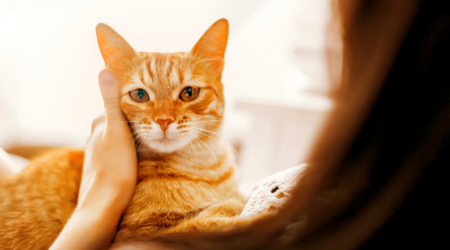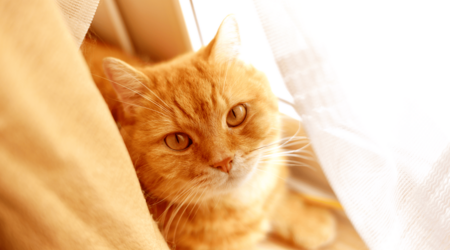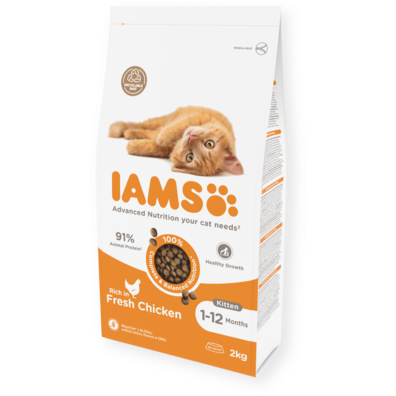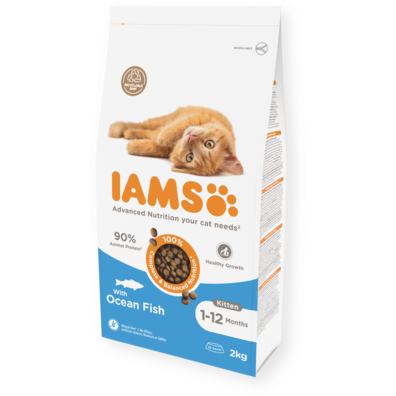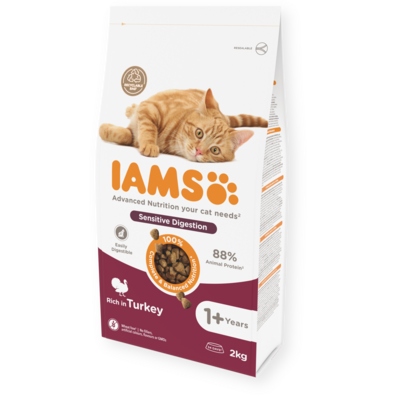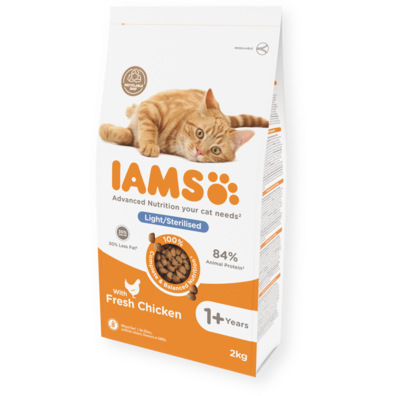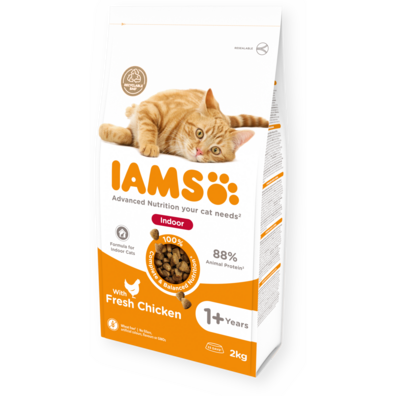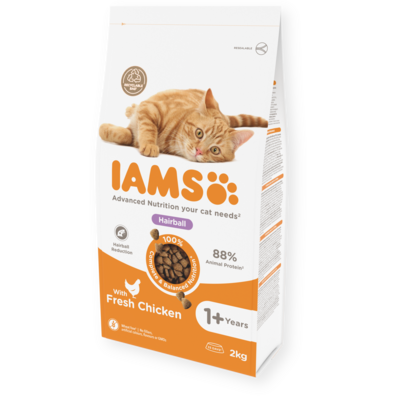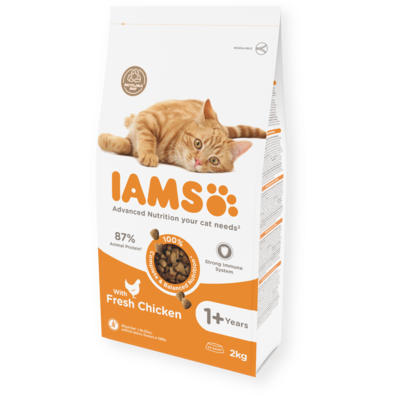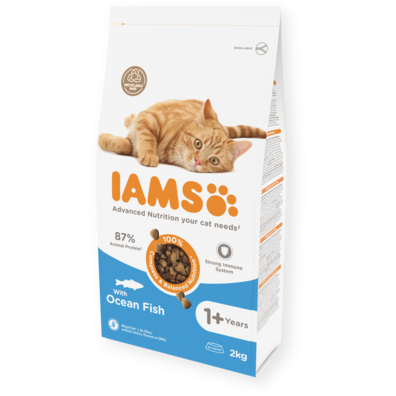Why does my cat keep meowing?
While the quiet observers prefer to watch everything from a distance, others have to constantly comment on everything - just like us humans, cats also have very different types and character traits.
But among all the ‘chatterboxes’, there are cats who meow for a good reason and are desperate to tell their owner something. Unfortunately, such a cry for help is not met with understanding by every cat owner.
-
Cats meow to communicate with humans, often seeking attention, food, or affection, and this behaviour can be reinforced if owners respond consistently.
-
Excessive meowing can result from boredom, lack of stimulation, or insufficient play, especially in indoor cats that need more activity and engagement.
-
Loneliness or separation anxiety may cause constant meowing, which can be mitigated by extra interaction, play, or even adding a second cat for companionship.
-
Hormonal factors, such as being unneutered, can trigger loud meowing, while health issues like hyperthyroidism, kidney disease, or pain can also increase vocalization.
-
Anxiety, past trauma, or age-related conditions like dementia can lead to persistent or unusual meowing, and in such cases consulting a veterinarian or feline behaviour specialist is recommended.

Why do cats meow at all?
Normally, adult cats communicate with each other less through sounds and more through their body language. While small kittens still try out different noises to demand food, warmth, closeness and security from their mum, this talkativeness usually diminishes with age. In addition to the typical purring as an expression of complete contentment and the nasty hissing, which expresses defensive behaviour, other sounds such as cooing, grumbling, growling, yowling or screeching remain.
However, cats that grow up in a household full of people learn that they attract the attention of their flatmates with their vocalisations. Whether it's tasty food, a little cuddle, a short game or simply positive coaxing - when cats meow, they usually get a reaction from their humans.
Many cat owners unconsciously train their pets to meow a lot - even though they wouldn't do this in the wild.
But some cats take this behaviour to the extreme. The spectrum of sounds is extreme and ranges from gentle meows and squeaky meows to loud and strange cries.
How much meowing is normal?
Unfortunately, it is not immediately obvious what your cat is trying to tell you with its meowing, because the difference between a cheerful chatterbox and a dissatisfied kitty is not always clearly recognisable.
Due to their genetics, some breeds tend to react to humans by meowing. Siamese, Burmese and Balinese cats, for example, are more talkative than their quieter counterparts, the domestic cats.
But how can you recognise why your cat is meowing?
If your pet looks directly at you and emits a meow, then it most probably has a wish and knows that you can fulfil it. If the meow ends with a long petting session or a small treat, then your feline friend's meow is perfectly acceptable.
When your outdoor cat returns home after its daily exploration tour and enters your home meowing, it will want to greet you happily and tell you all about its exciting day. This behaviour is also completely normal.
However, if you notice that your pet is tense, nervous or even anxious and can hardly calm down again when meowing, you should listen carefully.
Your cat won't stop meowing when you do something good for it and wanders restlessly around the flat? If the occasional meowing turns into constant meowing that is suddenly very loud or sounds different than usual, there is usually a cause behind the cat's whining that you should definitely get to the bottom of.
Why does my cat meow all the time?
To find out what is behind your cat's need to communicate, you should investigate the cause.
Possible reasons for your cat meowing excessively:
Boredom
Probably the most harmless cause of cat whining is simply that your cat is bored. Indoor cats in particular tend to feel underchallenged and know very well that they get your full attention with their meowing. Now they are fed, entertained or stroked and this behaviour becomes ingrained.
You can find out quite easily whether your cat is really ‘just’ bored. If your cat constantly follows you around or roams restlessly around the flat but quietens down as soon as you give her attention, it's pretty clear: your cat is suffering from chronic boredom.
What can you do about it?
- Create an exciting environment with opportunities to climb, hide and scratch.
- Keep your cat busy with toys, tunnels and puzzles.
- Play with her and give her the attention she deserves.
- If you have an indoor cat, think about letting it go outside, as there are many more things to do outside. Alternatively, you can also equip your garden or patio with a cat fence.
Find out more in our article on Tips for entertaining your adult cat.
Now, however, you should not only give her more to do, but also get her out of the habit of meowing. Look ahead a little and be quicker than your cat. Has she just woken up from her afternoon nap and is about to enter her active phase? Play with her - before she starts to whinge. Has your little stray just come home from a foray and is about to beg loudly for food? Be ahead of your cat and prepare the food before it comes home.
Other more harmless causes are hunger and thirst as well as stress - caused by an unloved partner animal, too few litter trays or a strange cat roaming around the garden at home.
Loneliness
If your cat starts whining as soon as you leave the house or close the door behind you, it is clearly very focussed on you. In this case, you should pay extra attention to your cat and include it in as many of your activities as possible.
If you are unable to do this because you are working full-time, for example, you should think of getting a second cat. Whether playing, cuddling or cleaning together - most cats are not loners and are happy to have a playmate. And the meowing will certainly stop quickly.
Hormonal changes
But hormones can also go crazy. When unneutered cats come into heat or a male cat smells a cat in heat, loud meowing is not uncommon. In this case, you should look out for other signs and possibly consider neutering.
Anxiety
Unfortunately, there are also much more complex reasons for the cat's whining. If your cat doesn't directly mouth at you, but instead cries apathetically and bloodcurdlingly, then it's either dementia, a trauma or an anxiety disorder.
If your otherwise very young and healthy cat displays such behaviour, it may be that it has been unable to cope with something in the past - perhaps a relocation or the loss of a companion. You should be there for such an anxious cat as often as possible - with security, closeness and activity.
If this does not help, you can seek special cat counselling or behavioural therapy for animals and work with specialists to help your pet.
Disease
Cats may also meow more when they are feeling unwell. They make a noise when they are sick or in pain. The following illnesses, for example, are characterised by cat meowing:
- Hyperthyroidism
- Kidney disease
- High blood pressure
So be sure to look out for other symptoms, such as loss of appetite, dull coat or vomiting. Old cats are particularly affected by these diseases and dementia or the onset of loss of perception due to deafness or blindness can also lead to increased meowing.
With such behaviour you should always consult a vet.
Conclusion: What to do when your cat meows constantly
Excessive meowing in cats is often home-made. Here's how you can train your cat to stop this behaviour:
- Provide plenty of opportunities for activity, such as an exciting environment, toys and, if necessary, outdoor access. Make sure you do this at the right time - preferably before your cat starts meowing to get your attention.
- Make sure your cat has a full bowl and doesn't have to beg for food.
- Think about getting a playmate for your cat, especially if you are not at home much.
- Neutering can provide a remedy for unneutered cats. This step should be discussed with your vet.
- If your feline friend is more anxious and suffers from trauma, it may help to consult a specialist in feline behaviour therapy.
- Watch out for symptoms such as loss of appetite or vomiting and always contact your vet directly if you suspect illness or pain. For more information, please also read our article Why is my cat being sick?.
At IAMS, we support your cat's general well-being with advanced nutrition that is tailored to the natural needs of cats at all ages and in all situations. You can find more helpful tips on cat nutrition and health in our Cat Guide.
